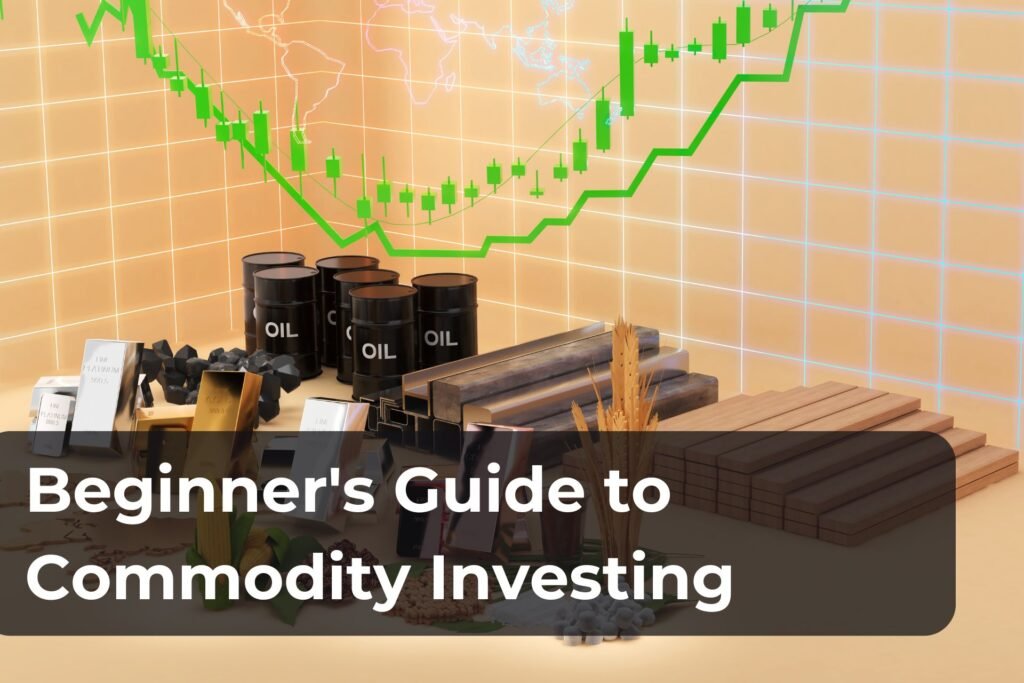Ever think of commodities like gold, oil, or wheat as investment opportunities? While most investors focus on companies, buying stocks or bonds, often beginners don’t look into alternative investments like commodities. The question arises:
Are there lucrative returns when it comes to investing in commodities?
Who are the people regularly investing in these markets?
Can I also invest?
Commodities investing offers a unique opportunity to diversify investment portfolios beyond traditional equities and bonds. Unlike stocks, which represent a share in a company, commodities are basic goods or raw materials used in commerce, directly linked to the global economy’s supply and demand dynamics. This distinctive feature can lead to lucrative returns, especially in times of inflation or when specific sectors experience growth.
Who Invests in Commodities?
A wide range of investors engage in commodities trading, from individual retail investors to large institutional players like hedge funds and pension funds. Additionally, producers and consumers of these commodities, such as farmers, mining companies, and energy producers, invest in commodities to hedge against price fluctuations, securing prices for their products or inputs.
The Appeal of Commodity Investing
Diversification:
Commodities often have a low correlation with stocks and bonds, meaning they can perform well when traditional markets are struggling, providing a hedge against inflation and reducing portfolio risk.
Potential for High Returns:
Certain commodities can see significant price increases based on market demand, geopolitical issues, or supply disruptions. For example, crude oil prices can surge during geopolitical tensions in oil-rich regions, benefiting investors holding oil futures or related investments.
Direct Exposure to Global Economic Trends:
Investing in commodities allows investors to directly benefit from global economic growth. As economies expand, the demand for basic materials, energy, and food typically increases, potentially driving up commodity prices.
How to Invest in Commodities
Commodity Futures:
Futures contracts are the most direct way to invest in commodities, allowing you to agree to buy or sell a specific quantity of a commodity at a predetermined price on a future date. While offering high potential returns, they require a deep understanding of the market and are considered high risk.
Commodity ETFs and Mutual Funds:
These funds invest in commodities or futures contracts and offer a more accessible and less risky way to gain exposure to commodities. For example, the Gold ETF allows investors to invest in gold without physically holding the metal.
Stocks of Companies in the Commodity Sector:
Investing in companies involved in the production or trading of commodities is another way to gain exposure. For instance, investing in shares of a mining company can be a way to benefit from potential increases in gold prices.
Considerations and Risks
While commodity investing can be rewarding, it carries risks. Prices can be volatile, and influenced by factors like weather, political instability, and changes in currency values. Investors need to understand these markets thoroughly and consider commodities as part of a broader, diversified investment strategy.
Commodities offer an exciting avenue for investors willing to navigate their complexities and inherent risks. By providing a hedge against inflation, potential for high returns, and diversification, commodities can enhance a well-rounded investment portfolio. Whether through direct investment in futures, commodity-focused ETFs, or stocks of commodity-producing companies, there are multiple paths for beginners to explore this vibrant market.
Remember, successful commodity investing requires research, a clear understanding of the risks involved, and, often, guidance from financial professionals. With the right approach, even beginners can tap into the potential that commodity investing has to offer.
